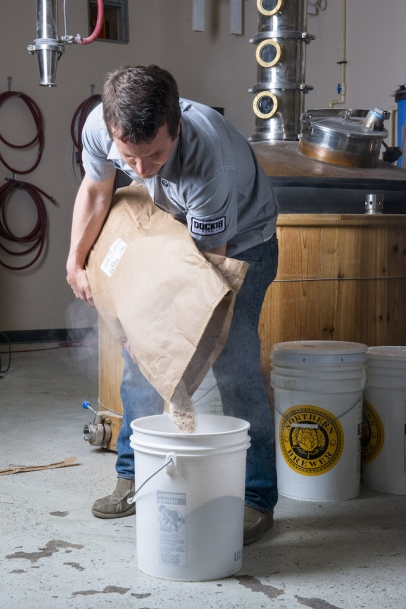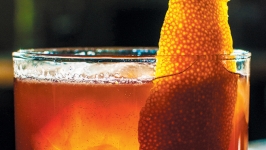Let Craft Producers Thrive
A homebrewer starts a nano-brewery and bartends at night to pay the bills. That’s illegal. The owner of a small restaurant co-founds a brewpub, where she runs the kitchen. That’s illegal. A bar has an event featuring gin from the distillery down the street, but they run out of gin, so they send someone to the distillery to get more. That’s illegal. The laws that make these things illegal (along with many other absurdities) were intended to prevent big companies from monopolizing the liquor market. Unfortunately, without exemptions for small producers, they unnecessarily hurt craft breweries, wineries, and distilleries - and Wisconsinites who want to see more locally produced, craft products.
Our liquor laws follow what is called the “three-tier system,” which requires distinct separation between alcohol producers, distributors, and retailers. The rationale behind legally mandating separation between the three tiers is that it prevents big companies from dominating the market. By preventing big breweries, for example, from buying distributors and retailers, we prevent them from creating vertically integrated monopolies that could block out competing products.
It simply does not make sense to apply these laws to small producers. Small breweries, wineries, and distilleries are by definition not big enough to create monopolies that stifle competition. The startup brewer bartending by night to pay the bills is obviously not in a position to buy up Milwaukee’s bars and only sell his beer. Enforcing laws designed to prevent monopolies on these small companies unnecessarily restricts small producer growth.
Our liquor laws have been repeatedly amended over the past few decades. Some changes have included limited exceptions to three-tier restrictions for small producers, but they have been piecemeal and are incomplete. For example, breweries and wineries can self-distribute a small amount of their products, but distilleries cannot. Breweries, wineries and distilleries can have tasting rooms to serve their products, but wineries must close their tasting rooms by 9pm. The limited exceptions carved-out for small producers have helped spur growth in craft alcohol production in Wisconsin, but they are inexplicably inconsistent and are incomplete. We can do better.
Wisconsin should lead the country in craft alcohol production, but our laws still needlessly hold us back. If a brewery, winery, or distillery is under a certain size, why have any three-tier restrictions on them? Why can’t a winery tasting room be open after 9pm? Why can’t a distillery sell a bottle of their gin to the bar across the street? Why can’t a restaurant owner also open a micro-brewery? While the three-tier structure of our laws may help prevent domination of the market by large companies, the policy reasons for these laws do not apply to small producers. The solution to this problem is simple: exempt small producers.
If we want craft breweries, wineries, and distilleries to thrive in Wisconsin, we need to make our voices heard in Madison. Last year, Wisconsin’s small breweries, wineries, and distilleries came together to form the Wisconsin Craft Beverage Coalition. This year, the Coalition is organizing efforts to modernize Wisconsin’s liquor laws. The upcoming political battle over Wisconsin’s liquor laws will be a David versus Goliath matchup of good policy and public support versus money and political connections. We’re going to need your help if we are going to stand a chance. Stay tuned, and Drink Local Wisconsin!





